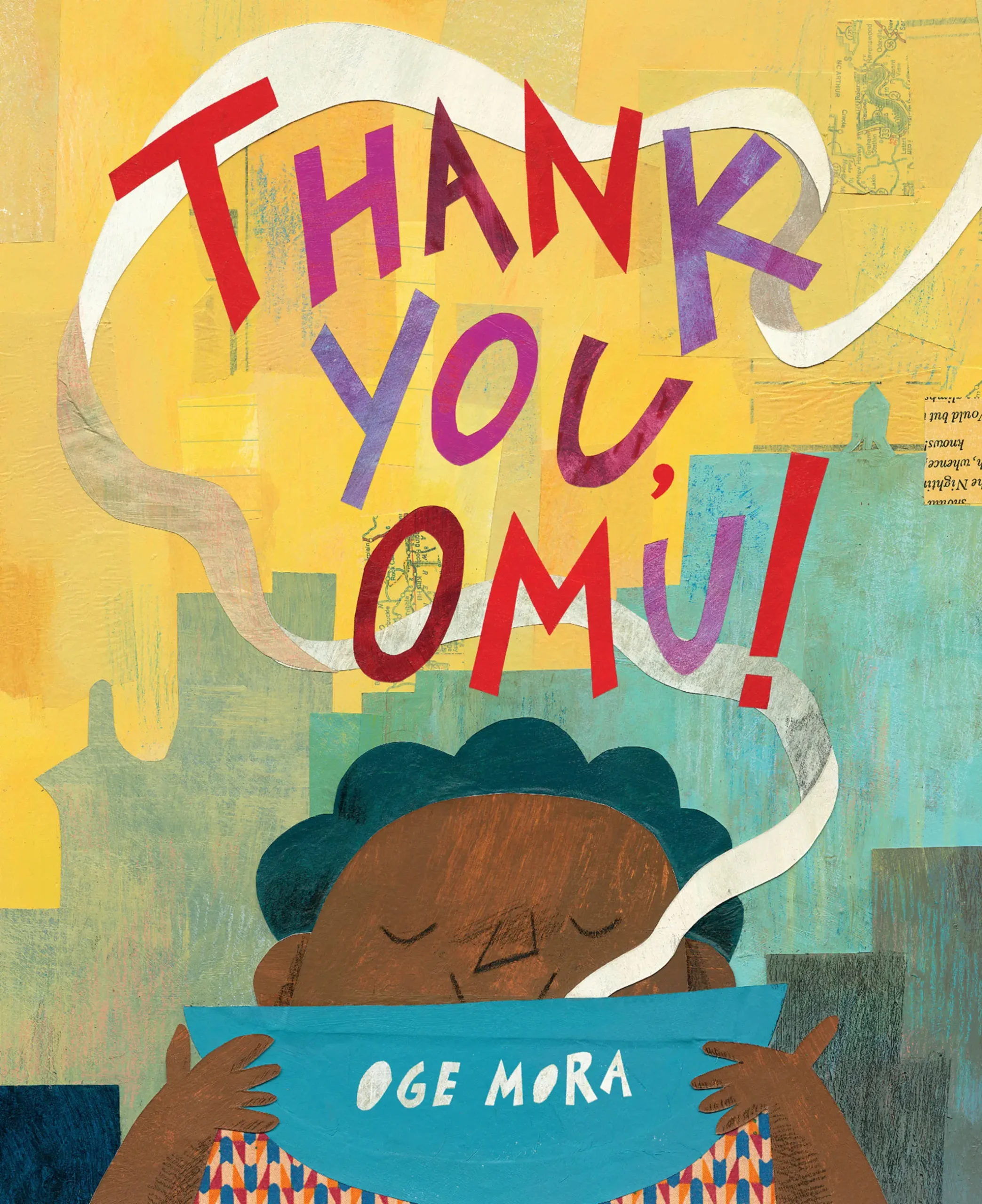
Art Form: Music
Supplies Needed
Thank You, Omu! book
Vocabulary
Body percussion ostinato - Using the body to create
sounds in a repeated pattern (e.g., snap, clap, pat, stamp)
Steady beat - Consistent pulse; “heartbeat” of music
Tempo - Speed of the beat
Rhythm - Long and short sounds
Phrase - Musical sentence
Rest - Silence
Instructions
1. Read the book and talk about the main idea.
2. Look at the first page and read what Omu says (leave out “Omu said”).
3. Pat the steady beat using a moderate tempo (medium speed). Change to a pat-clap pattern. Keep repeating this steady beat pattern (body percussion ostinato).
4. Now read Omu’s words using a rhythm. See if you can say these words in an interesting rhythm that lasts for 12 beats. Sometimes, you’ll say several syllables in a single beat! Slow the tempo if needed.
5. Continue reading the book. Each time you get to a place where Omu speaks, say her words in a rhythm. Sometimes you’ll say the words in a 4-beat phrase and other times it will take 8 beats. Sometimes you will end your phrase with a rest.
6. When you read this way, notice how most of the book is read without a rhythm or steady beat, but when Omu speaks, her words are in a rhythm.
Extensions
Say the title of the book in four beats using a rhythm. When you decide on the rhythm, say the title two times. Read the book saying the title twice (using your rhythm) whenever these words appear in the story.
Create a different body percussion ostinato to accompany Omu’s words.

About
The REimagining and Accelerating Literacy through Arts Integration (REALAI) grant supports the literacy achievement of 3,200 students and 170 teachers, media specialists, and literacy coaches across six schools in Georgia and South Carolina.
In addition to professional learning for educators, this project contributes significantly to school library collections through the purchase of developmentally appropriate and culturally relevant books.
This grant also includes parent events to provide families with access to books and other content about how to support their child’s reading development.
